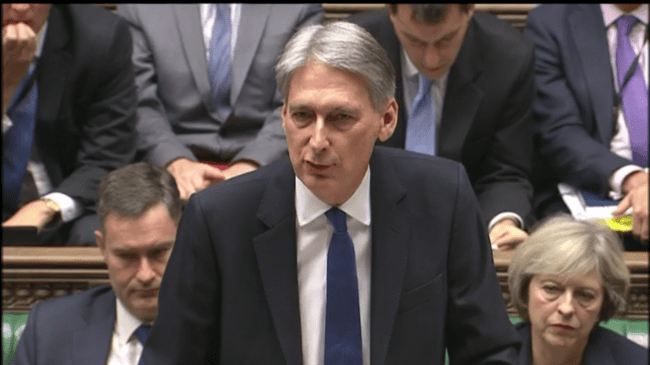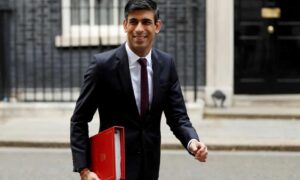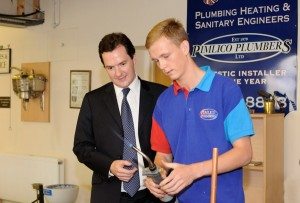David Cameron may have left the scene, but George Osborne was on the back benches, smiling, no doubt, because it wasn’t him in the hot seat this time around.
But, as Philip Hammond waxed lyrical about how the UK’s ‘shocking productivity gap’ needs to be closed to compete with our European neighbours, with the help of a £23 billion National Productivity Fund; and another £2 billion-a-year for cutting edge scientific research and development, it felt like were back to square one on the giant game of Snakes and Ladders we started playing in 2010.
On the face of it things are still fine, and the results from all the hard work of building the economy up over the last six years, since the Conservatives inherited Gordon Brown’s ‘no money left’ Treasury, are still visible.
But instead of looking forward to a winning future, the thrust of Mr Hammond’s speech was very much one of laying more groundwork, for yet another attempt at scaling the economic heights, after landing on a giant snake head.
There was no mention of Brexit in the entire time the Chancellor was on his feet, but it was clearly the 122 billion quid elephant in the room, as revised forecasts on deficit reduction pushed the date our balancing our current account well into the next parliament.
There were small gifts for the people who are ‘just about managing’ that the Prime Minister had promised to help, with the national living wage increasing by 30p an hour to £7.50; a ban on letting agents charging tenants fees to find somewhere to live, and a minor adjustment to the taper rate of Universal Credit, as people partially come off benefits.
There was, of course, the rise in the personal tax allowance and the now customary cancellation of the rise in fuel duty.
But for me, there might have been a grand view of what the Chancellor would like UK PLC to look like in 20 years, but the nuts and bolts of how we’re going to get there were missing.
The Government is committed to creating three million apprenticeships by 2020, but that may not be enough if the Chancellor is going to deliver on his promises.
We can’t be more productive, work cleverer and compete in international markets if we don’t arm people with the right skills at an early age. Investments into the fabric of the country have to be matched by investments in skills.
We already face skills challenges in key trades and technical industries, which depending what happens with our exit of the European Union, could be intensified by immigration curbs.
I’m sure you can feel my frustration, as I could feel the Chancellor’s yesterday, which is why I hope that what we heard is actually underpinned by a clear understanding that our ability to escape our new economic pit relies on us making sane choices in the way we negotiate our Brexit deal.






